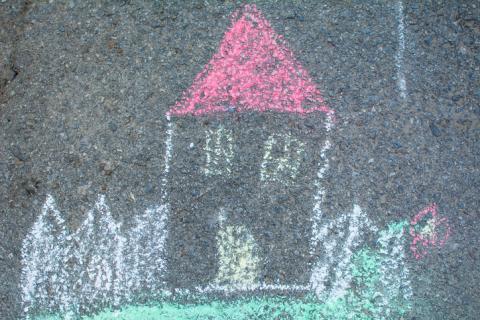I teach a first year undergraduate sociology course at the University of Manchester in which students examine social scientific perspectives on major global challenges such as inequality, climate change, migration, radicalisation, ending poverty and corporate power.
I designed a writing assignment that asked students to communicate important sociological ideas - and they rose to the challenge. They had to address debates they encountered in the news, media or online, but on the basis of the scholarly knowledge they were encountering (often for the first time). They had to write in an accessible and engaging style, that neither hid their passions behind technical language nor lost sight of the need for considered reflection and evidence.
What can you do with a sociology degree?
Some deconstructed the "migrant crisis", others examined climate change and others scrutinised the role that ill-conceived narratives of "radicalisation" are playing in attempts to combat terrorism.
We ended up with a collection of 70 blog posts from nearly 60 authors on seven social challenges. These have now been published on the Global Social Challenges blog. A competition identified the best pieces and can be viewed in full by clicking on the headlines.
Amber Jasmine Quraishi
The liberal left is quick to distance itself from the right-wing and its “racist” discourse when discussing race and migration. When Germany took in a record 1.1 million refugees in 2015, the German magazine Der Spiegel admitted the country had become “a nation split in two”. The article seemingly created a dichotomy between the moral left and the immoral right wing. This dichotomy is continuously upheld by nearly all parts of the left wing, at times, even by myself. The discourse of civic (liberal) nationalism within its very definition uses the liberal rhetoric of ‘freedom, tolerance, equality and individual rights’ (Tamir, 1993). However, it is this very rhetoric, which exposes the problematic narrative of left liberalism.
Lucy Alty
A Conservative government, which prioritises improvements to the economy over the country’s welfare provisions, has caused a staggering increase in homelessness. Homeless charity Crisis reports that after years of declining trends in homelessness prior to [the coalition government and] Tory rule, there has been a 50 per cent increase since 2010, with the likelihood that it will rise further still as the impact of various reforms, the economic downturn and cuts to the housing benefit take effect. As a first-year student from a relatively wealthy and sheltered town, while I have always been aware of the presence of the homeless community, I was not prepared for the sheer number of people living on the streets that I would encounter when I moved up north. The huge homeless population here in Manchester is an accepted part of daily life.
'Protest and repression: fighting the power globally'
Emily Glynn
Globally, there are many different challenges that affect the world both socially and physically, ranging from global climate change to global financial crisis and economic inequality. In this post, I will be focusing on how the current model of globalisation has become a major global social challenge and how different groups of people from around the world are fighting the power that thrives on it.
The rest of the blogs from the students at the University of Manchester can be found on the Global Social Challenges blog
Kevin Gillan is senior lecturer in sociology at the University of Manchester

Comments